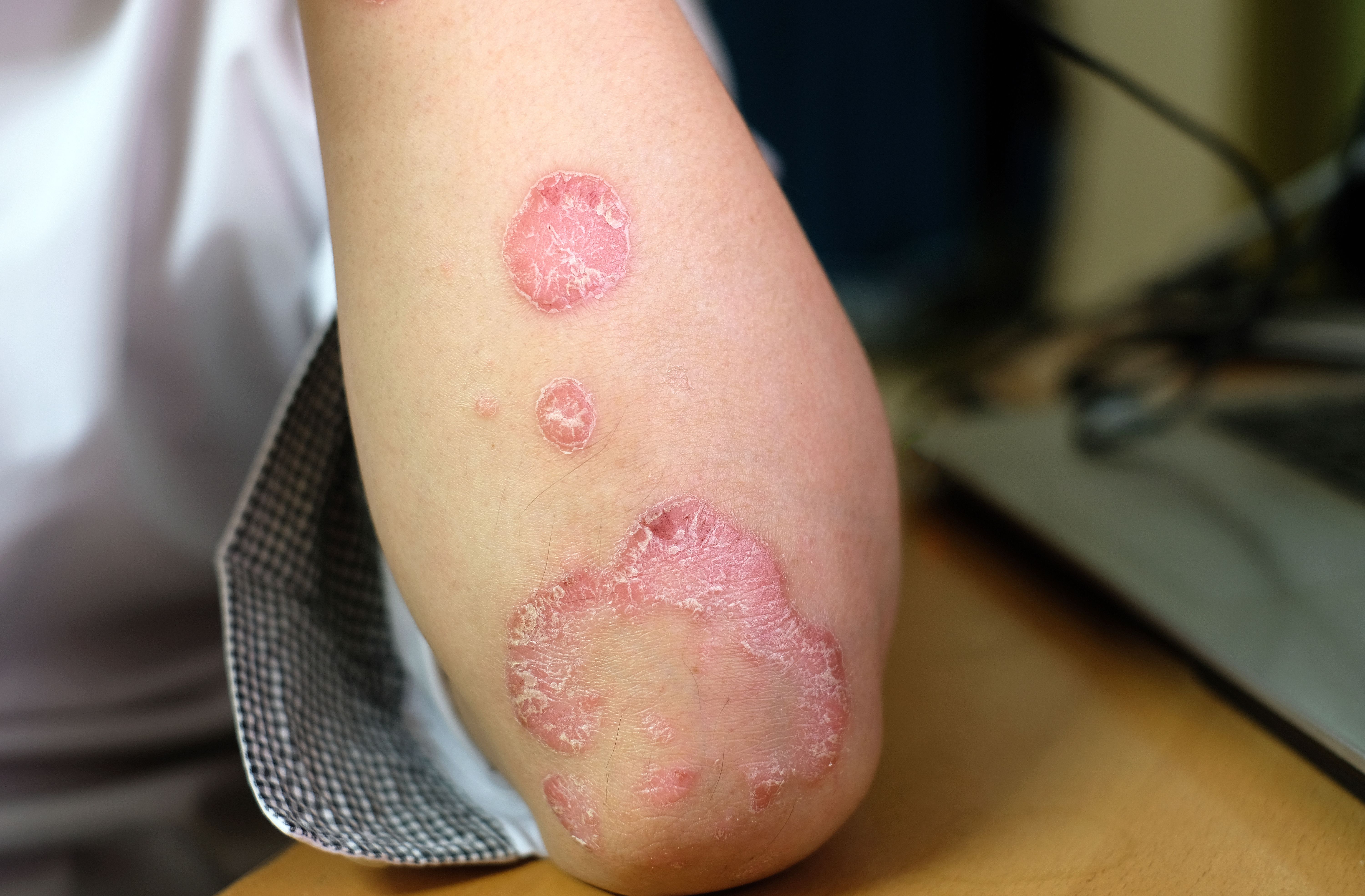- Acne
- Actinic Keratosis
- Aesthetics
- Alopecia
- Atopic Dermatitis
- Buy-and-Bill
- COVID-19
- Case-Based Roundtable
- Chronic Hand Eczema
- Chronic Spontaneous Urticaria
- Drug Watch
- Eczema
- General Dermatology
- Hidradenitis Suppurativa
- Melasma
- NP and PA
- Pediatric Dermatology
- Pigmentary Disorders
- Practice Management
- Precision Medicine and Biologics
- Prurigo Nodularis
- Psoriasis
- Psoriatic Arthritis
- Rare Disease
- Rosacea
- Skin Cancer
- Vitiligo
- Wound Care
News
Article
Patients Grade Disease Severity Higher Than Physicians
Author(s):
Patient and physician demographics were not significantly associated with discordance.
Patients with psoriasis or atopic dermatitis often perceive their disease to be worse than their doctor’s assessment due to many factors, including physical and emotional markers.1 Discordant severity grading (DSG) can cause frustration and interfere in the patient-physician relationship.
otello-stpdc/AdobeStock

Long et al performed a cross-sectional study of 1053 patients 18 to 99 years old who were diagnosed with psoriasis or atopic dermatitis with a duration of at least 3 months. The mean age of participants was 43.5 years, 55% were male, 76.2% had atopic dermatitis, and 23.8% had psoriasis.
Of the 44 physician participants, 45.5% were male and 54.5% were between 31 and 40 years old. Physicians recruited between 2 and 18 patients, with a median of 5 recruited patients between October 2021 and September 2022.
Patients and physicians completed a questionnaire independently after a consultation. Patients completed the questionnaire only once, but physicians could submit data more than once to account for multiple patient visits.
The patient survey included measures on quality of life (QOL [Skindex-16]), anxiety (Generalized Anxiety Disorder-7), various domains of illness perception (Revised Illness Perception Questionnaire [IPQ-R]), resilience (Brief Resilience Scale), personality (Ten Item Personality Measure [TIPI]), physician empathy (Jefferson Scale of Patient Perceptions of Physician Empathy (JSPPPE), and trust in the physician (Wake Forest Trust Scale).
Physicians completed the Difficult Doctor Patient Relationship Questionnaire (DDPRQ-10). Objective severity of disease was determined using body surface area (BSA) and investigator global assessment (IGA) for atopic dermatitis or physician global assessment (PGA) for psoriasis. Patient and physician demographics and type of visit (first or follow-up) were adjusted for control as variables.
The primary outcome of disease severity grading as an overall global assessment was determined with the question “How severely would you grade your/the patient’s skin condition?” A 0 to 10 scale was used with a higher score indicating a more severe degree of disease. Outcomes were categorized as positive if the patient grade was 2 or more points higher than the physician grade, and negative if the patient grade was 2 or more points lower than the physician grade.
A total of 566 (53.8%) of physician-patient surveys were concordant, 447 (42.4%) were positively discordant (patient graded severity as worse than physician), and 40 (3.8%) were negatively discordant. Impaired QOL, higher symptom expression, and lower objective disease severity led to more positively discordant grading.
Long et al found no significant association between patient and physician demographics and discordance. They suggested that “The temptation to attribute outcomes to easily available demographic variables may lead to a misinterpretation of the phenomenon and impedes attempts to change the outcome because these demographics are typically nonmodifiable.”
Researchers theorized that daily exposure to severe disease may lead physicians to assess milder cases as trivial, and that medical training emphasizes objective and physiological aspects of disease, minimizing the patient’s experience. They report that many reasons for discordance are modifiable, which can guide physicians in prioritizing patient-focused outcomes.
Reference
- Long V, Chen Z, Du R, et al. Understanding discordant perceptions of disease severity between physicians and patients with eczema and psoriasis using structural equation modeling. JAMA Dermatol. 2023;159(8):811–819. doi:10.1001/jamadermatol.2023.2008
Newsletter
Like what you’re reading? Subscribe to Dermatology Times for weekly updates on therapies, innovations, and real-world practice tips.







